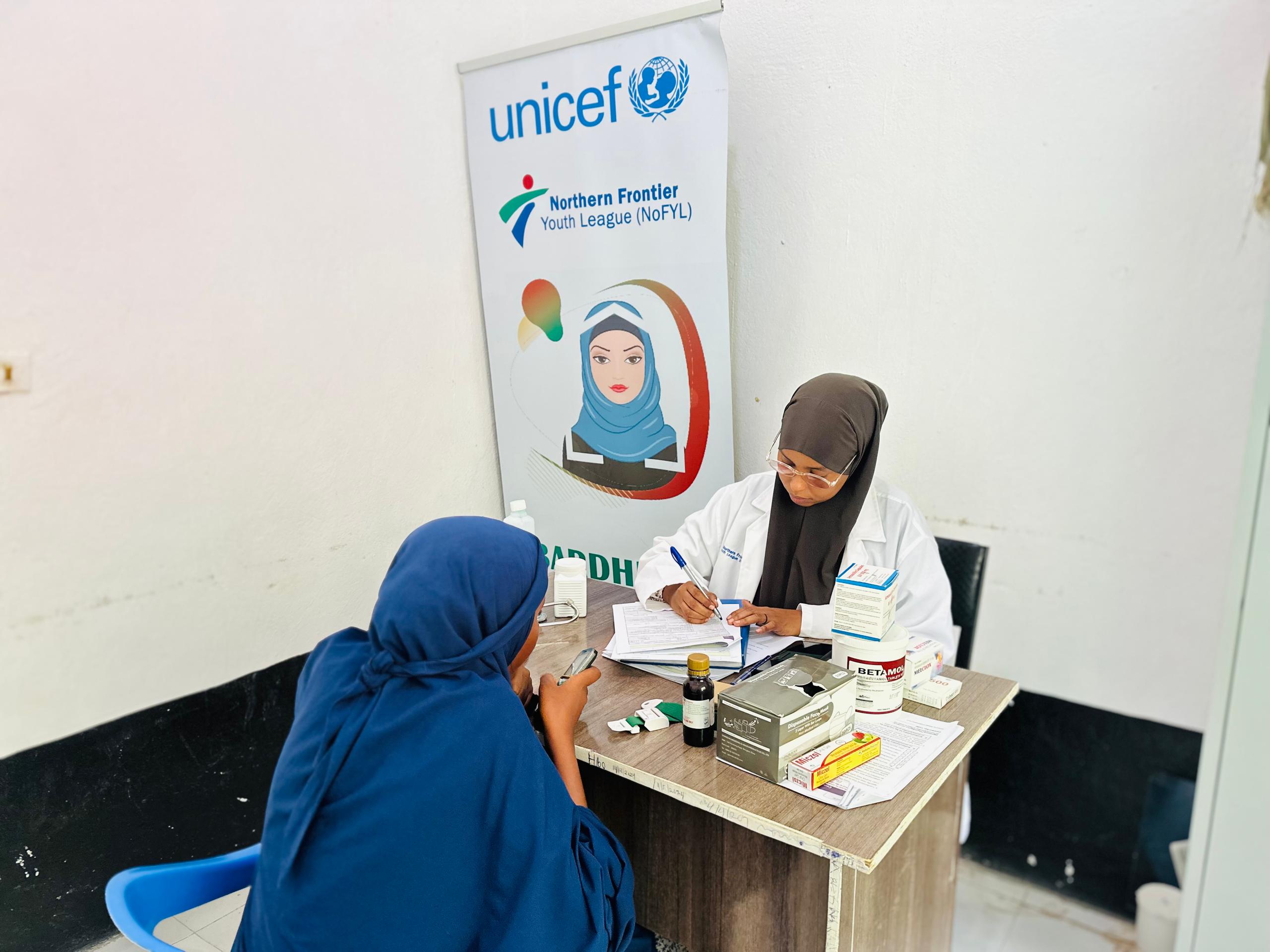Inside the quiet consultation room of NoFYL’s One-Stop Center in Bardheere, Nurse Asha Mohamed gently speaks with a woman sitting before her. The woman’s eyes are red with tears, her hands trembling. Asha leans forward, her voice calm and reassuring – “You are safe here. We will help you.”
It is a phrase she has repeated countless times, yet each time it carries the same compassion and resolve.
Asha holds a Bachelor of Science in Nursing from the University of Somalia (UNISO). She brings not only her professional training but also a deep sense of empathy to her work supporting survivors of gender-based violence (GBV).
In Belet-Xaawo, her colleague Fadumo Hassan, a graduate with a Bachelor of Science in General Nursing from Horseed International University shares the same dedication. For both nurses, the job is more than a profession – it is a calling. Every day, they provide life-saving medical care, psychosocial support, and referrals for women and girls who have survived GBV. Many arrive in distress, carrying not only physical injuries but deep emotional scars.
“We are often the first people survivors see after their trauma,” Asha says softly. “Sometimes they come with wounds, sometimes in shock, sometimes silent, unable to speak about what happened. My role is to treat, listen, and remind them that healing is possible.”
The One-Stop Centers, supported by UNICEF, are a safe haven for survivors in the Gedo region, offering free, confidential, and compassionate care. Here, nurses like Asha and Fadumo provide emergency medical treatment, help prevent infections, and ensure survivors receive appropriate follow-up care, including referrals to general hospitals for complex cases or psychosocial counselors for long-term support.
Fadumo recalls one case that still lingers in her memory – a teenage girl who was brought to the center after experiencing severe sexual violence.
“She was so young and terrified. It broke my heart,” Fadumo remembers. “We treated her injuries and provided emergency care. I stayed with her for hours, just talking, because she needed more than medicine; she needed to be heard.”
That same girl is now back in school and occasionally visits the center to say thank you. “Those moments remind me why I chose this path,” Fadumo smiles.
But the work is not easy. Every day brings new challenges – from handling traumatic cases to managing limited resources.
“The hardest part,” Asha Admits, “is when survivors delay seeking help. Some arrive too late for emergency treatment. Others face pressure to stay silent or return to abusive environments. It’s painful to watch, but we keep doing our best.”
Both nurses say their worst experiences are dealing with cases involving young girls or women injured by people they trust, family members, neighbors, or even husbands. Such cases test their emotional strength, but they never let despair overcome compassion.
Despite the emotional toll, Asha and Fadumo find comfort in each other’s support and in the positive changes they witness.
“When a survivor leaves the center smiling, I feel I’ve done something meaningful,” says Fadumo. “We may not change every situation, but we can change one life at a time.”
Their work goes beyond treatment, it’s about restoring dignity, hope, and confidence to those who have endured unimaginable pain.
Every month, dozens of survivors walk through the doors of these centers seeking safety, healing, and hope. For many, it is the first time they receive professional medical care, psychological support, or simply a chance to be heard without judgment. Without these services, countless women and girls would continue to suffer in silence, exposed to stigma, untreated injuries, and long-term trauma. Sustaining these services is vital, as they provide safety, healing, and hope to thousands of vulnerable women and girls.
“Every survivor deserves to be treated with respect and love,” Asha says. “That’s what keeps us going; the belief that healing begins with kindness.”
“Keeping these services running means keeping hope alive,” says Fadumo. “Every woman and girl who walks through our doors deserves the chance to heal, rebuild, and live without fear.”







